Labour of Love: Interviews with Fanwork Creators
by LicoriceAllsorts February 12, 2015 0 commentsFanworks.
Maybe you’re a creator. You draw, or write, or cosplay. Or maybe you’re a consumer: you’ve read someone’s fanfiction, or played their fan-game, or downloaded their fanart and saved it to your hard drive against the day when the artist decides to delete all her work from the internet and close down her deviantart account [we’ve all been there – Ed.]. Love them or hate them, fanworks are an inescapable part of the fan experience, a vital sign that a fandom is alive and thriving.
Some creators of fanworks have achieved fame and found careers for themselves – the late, much-mourned Mounty Oum springs to mind – but for the vast majority of its creators, fan-art, fan-fiction, and fan-games are a labour of pure love, done without any expectation of getting anything in return. What drives people to pour so much time and effort into something that will never earn them any money, and is often dismissed as “not real writing” or “not original art”? What do they get out of it? Where does the urge to make and share fan-works come from? That’s the question this series seeks to answer.
We’ll be having conversations with various fan-works creators who are either currently active in the Final Fantasy fandoms, or who have contributed a work of lasting significance for Final Fantasy fans. First up is fanfiction author Mo Gallagher, better known at fanfiction.net and other hosting websites as SandG. In the world of FFVII fanfiction, SandG’s claim to fame is that he was one of the first, if not the first, writers to attempt a novelisation of the original game – a huge undertaking. Since then, SandG’s has been able to carve out a career for himself as a professional writer, something which many of us can only dream of. We’ll start off with some general questions about SandG’s evolution as a writer, then take a closer look at his FFVII fanworks, before talking about his current projects.
The Lifestream: SandG, would you say that the experience of writing your monumental novelisation of FFVII has helped to make you a better writer?
SandG: First of all, I’d just like to say thank you for giving me the opportunity to share my experiences. To be honest, I might not have even considered a career as a professional writer, never mind taken on one had it not been for FF7. I would definitely say that writing a pair of fanfic novels has set me up for venturing out into a new world of fiction, which. in hindsight, I would have been ill-equipped for even two years ago. From a non-writing perspective as simply a fan of the game, I was captivated from the beginning by the depth of FF7. Until then, I don’t believe I had ever been truly immersed in such an epic tale. An older generation might claim that fantasy works such as The Lord of the Rings introduced them to the idea of a world in which layer upon layer of history was built by the writer, or a younger generation might say the same about Harry Potter, His Dark Materials, etc. Traditionally, of course, epic sagas have been around for millennia, but I’m simply referring to the mainstream ones of the 20th century. So, I guess you could say Final Fantasy VII was my Harry Potter.
What FF7 taught me was the classical formula of adventure, romance, tragedy, grief and redemption. As a player, you begin to love the characters as if they were close friends, and it pains you to wave goodbye at the final credits. I think it took me several years to come close to capturing that in my own writing. As a novice, my retelling was linear and more like a synopsis than a novel. It was only really when I adapted a historian-like attitude that the countless segments of what made FF7 so special began to unfurl: for every sequence of events, I had to know why they had originated; for every part of a character’s personality, I considered what had happened in their past that might make them that way; for every supporting character, I thought of their overall contribution to the story.
A few examples I could give of fantastic storytelling would be the development of the enemy from Shinra to Sephiroth to Meteor, or how even after Aerith’s demise, Tifa still struggles to compete for Cloud’s affection, or how many themes such as the greed of the elite and the ruin of natural resources reflect our own civilization, or how sub-quests such as Barret’s duel with Dyne or Yuffie’s determination to return Wutai to greatness intermingle with the main plot. This taught me as a writer that a successful book should not be afraid to veer at times from the core story; that there is a reason why most good tales have a romance involved somewhere; that your supporting cast can be as important to your readers as your main characters if written properly; that its themes must be relative to the reader. Though, I had to work all this out as I’m a mathematics and economics graduate, so I’m not really educated to a high level when it comes to literature or the breakdown of plot devices, characterization, etc.
I genuinely believe that taking the time to learn these things and adopt them for my own FF7 project has made me a better writer because my preferred style is to be thorough and engaging, providing background information and embellishing scenes to create a full and vivid picture. A number of critics have called this “purple prose”, while others have welcomed it as they feel it adds an extra dimension to a tale that so many know and love already. I suppose it really comes down to an individual’s taste. My other series, Axtelera Ray (AXR), draws heavily on ancient mythology as the books are set in a world where this is history, not legend, so a comprehensive understanding and historian-like approach means that I can provide more depth or reference old tales as there is an abundance of source material. Without refining my technique in my FF7 novels, I may not have been as efficient at this as I hope to be. I’d like to think working for so long in the fanfiction domain has taught me a lot – especially about perseverance and that criticism is your ally – and set me up to produce something that readers will enjoy in the future.
The Lifestream: How long have you been writing?
SandG: While I would occasionally compose short pieces as a kid, my interests lay more in art than writing. My first real hobby in it took off when I was 15, which was in fact my earliest handwritten edition of the FF7 story. I have continued that on and off ever since. My first role in a professional capacity came 4 years ago (when I was 24), researching and writing walking tours for a New Zealand-based travel and tourism company (Citywalksz, Ltd – www.citywalksz.com). I haven’t really gone more than a fortnight since without producing something whether that be for Citywalksz, FF7, AXR or otherwise.
The Lifestream: What was the first piece of fiction you can remember writing? Did you show it to anyone (friends, parents, teachers)? What was their reaction?
SandG: I’ve never been one to shy away from sharing my endeavours. While you couldn’t exactly call it fanfiction, I did try my hand when I was around 10 at writing and illustrating Jurassic Park comics. I loved the concept of humans being trapped in devastating dinosaur-based scenarios, and my amateur scripts pretty much centred around hungry T-Rexes. Can’t say my mum was too impressed by those. Most fiction came in the form of school homework, and it was this that introduced me to the idea of novelizing extracts of FF7. My English teacher of course saw these and was generally complimentary, though his feedback was focused on grammar, etc and not so much on the content. Again, my first real chance to share my writing was with the early FF7 drafts that I imposed upon my girlfriend at the time. She wasn’t too keen on them, and I learned the hard way that fiction of this sort is not something you can force down people’s throats. You have to just make it available and hope that someone will pick it up. Even today, despite me having released two full novels, no-one in my family has read more than a few chapters as it’s not their thing. I don’t hold any grudges about that, as I don’t think it would be fair to. The vast majority of my support comes from the online community.
The Lifestream: Nowadays you seem to work primarily in the sci-fi and fantasy genres. When did you know that these were your preferred genres and how did the realisation come to you? Have you written in any other genres?
SandG: I was well into my teenage years before I took an interest in fantasy. While my younger sisters were lapping up the first few Harry Potter books, I prized the works of Crichton and my collection of the official Resident Evil series by S.D. Perry. By my mid-teens, reading had fallen down my list of priorities behind chasing girls, playing videogames and football training. It was recaptured somewhat when the Lord of the Rings movies were released, and I fell in love with the trilogy. Tolkien’s anthology had always been among my dad’s favourites (himself an avid reader of fantasy), so I sort of picked it up from there. FF7 and FF8 had also had a mega impact on my life so I guess you could argue that my love of fantasy was born from videogames and movies rather than novels. While I’ve read several biographies, travel books or non-fantasy works (my favourite of these being Stieg Larsson’s Millennium trilogy), I think it would definitely be fair to say that there is a clear winner in what my preferred genre is nowadays. As for writing in other genres, I have of course worked professionally as a travel writer, but have also dabbled in some real-life comedy fiction and non-fiction which are based on my adventures abroad and some of the messy situations I’ve found myself in.
The Lifestream: What piece of writing can you first remember feeling really proud of?
SandG: I think the first time I was genuinely proud of something I had personally produced was when I posted a few chapters of my FF7 novelisation in the forums of TLS.net’s predecessor AdventChildren.net. The idea of making it public before then had not occurred to me because I suppose it was originally quite a private project that I only shared with a couple of people – none of whom were really that interested. I wasn’t familiar with fanfiction back then and was relatively new to the online community, but it was a bit of a turning point because my work was received pretty well from the beginning and gave me the confidence to continue sharing.
The Lifestream: Can you tell us about three or four works of fiction that were particularly influential for you?
SandG: I first read Jurassic Park when I was about 10, and was fascinated by the significant differences between the book and the movie adaptation. I believe this was my introduction to the concept that some things simply can’t be translated onto the big screen, but also that there is a balance between your core audience and a general audience. In the novel, for example, Crichton addresses the background of the science and genetics as well as complicated mathematics, particularly Chaos Theory. While this is touched upon in the movie, I don’t think it’s something that would appeal to a wider audience, so it was replaced by other themes. As one of the most iconic films ever, I think the right decision was made there. Along the same lines of understanding adaptations, I enjoyed S.D. Perry’s retelling of the Resident Evil games and how an author can use a bit of creative license to delve deeper into pre-existing content and produce an accurate but embellished version of something I already loved. If I had to pinpoint something that was a defining moment in my desire to do the same with FF7, it would be here.
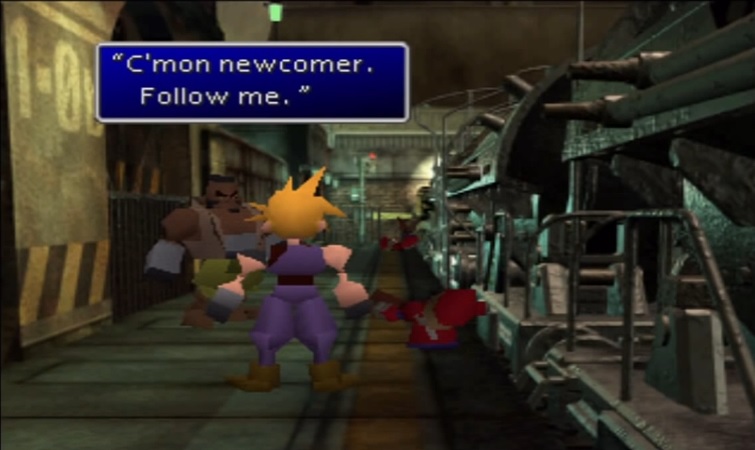
As for my understanding of writing, there are two books which could be singled out as probably my greatest inspiration for honing my style: Tolkien’s The Fellowship of the Ring and J. K. Rowling’s Harry Potter and the Goblet of Fire. What is always clear about Tolkien’s work is that he was phenomenally clever and phenomenally invested in the world he created. I was mesmerized by the scale of his descriptions and minute details, be that speaking about a location or of some history regarding Middle Earth, and initially felt that to produce so immersive a tale was perfect. However, I often found the book challenging (particularly the first third) because there is a huge amount of information that is unnecessary to casual readers. This again reflects on the idea of finding a balance between a core and a general audience, though I believe revised and shortened editions addressed the issue. I also found the same to be true of the Millennium trilogy at times, as the politics and legal system of Sweden are heavily dissected to the point of being borderline irrelevant.
As for The Goblet of Fire, it was not my favourite in the Harry Potter series (that honour belongs to The Half-Blood Prince), and I didn’t read that until I was 18 or 19. By this time, I had already published some of my FF7 work online (an early edition of what is now A New Threat), my fanfiction career was very much underway. The reason I highlight this book is that I can vividly recall taking regular notes of the techniques Rowling used to bring it all to life. In my opinion, there is a perfect blend of drama and character development, historical and background information, minor side-stories and characters that intertwine so brilliantly, the excitement of love interests, fear and tragedy, and terrific twists. All the while, it is a 700+ page children’s book. Rowling proved to me here in particular that a huge book is not required to be bulked out with tedious details that are unrelated to the central plot, and can be just as engaging as a 200-page thriller. More recently, I have fallen in love with George R. Martin’s A Song of Ice and Fire, and while his slow-paced style is perhaps aimed at a more mature audience than I intend for my own work, he is also a master of immersing his readers in an exceptionally vibrant and massive fictional world, and someone I have learned a great deal from.
The Lifestream: And now the moment we’ve all been waiting for: Final Fantasy VII. At what stage in your writing career did you first play this game?
SandG: I was only 11 when I first played FF7, many years before I started writing.
The Lifestream: Can you describe the impact the game had on you?
SandG: FF7 had a tremendous impact on me as a young man. This was the first epic story I had ever experienced in a medium other than books. It had a way of portraying the characters as friends rather than fictional entities; you got to know them, their past, their personality flaws, and like or loathe them. Getting players to invest to that extent is an exceptional achievement for any videogame. I think part of the beauty was the myriad of personalities on show. FF7 was also my first RPG, so the concept of “playing a novel” was pretty new to me, and I was hooked within minutes. There are many elements to the plot that I love and continue to learn from even today while working through my own retelling, but I suppose the 3 that stand out for me most are fantastic blend of modern(ish) science and fantasy, the development of who the real enemy is and the shifting focus of the player, but also the parallels with our own world that the underlying themes create.
I loved how segments of the game reflected various degrees of sci-fi as well as fantasy. For example, the grimy dystopian setting of Midgar was reminiscent of Blade Runner, while the journey across the rural Eastern Continent (from Kalm to Junon) reminded me of Lord of the Rings. From a storyteller’s point of view, I also learned from FF7 that it’s very important to have an ultimate enemy/goal which is significantly different from where the tale begins. Such an arc promotes character development and reader engagement, as a linear plot is an author’s worst enemy. I believe another reason that FF7 is considered so important to so many people is that much of its themes are relative to the real world. While several examples exist, the most prominent is probably the destructive tendencies of humans and the damage that can be caused by misuse of natural resources. I certainly wouldn’t call myself an environmentalist, but I am conscious of the state of our own planet and do my bit to recycle, etc. I think part of this mentality was born from the message of FF7, and it would also be naïve of me to dismiss the impact of the game on my understanding of loss and death, spiritualism, or how someone can achieve redemption even from the darkest of places of the soul.
The Lifestream: What made you decide to novelise this game?
SandG: My first attempt at novelizing FF7 actually came as part of some school homework. Once each week, my English teacher would set us the task of writing a 500-word composition that could be on any topic of our choosing. I remember playing FF7 one Sunday afternoon and knowing that I still had to complete this homework, so I decided to combine the two. If I recall correctly, the first scene I ever wrote was aboard the rocket when the party are introduced to Cid. I was surprised at how much I enjoyed it, and soon followed the same format every week. As I’ve mentioned, I was also a fan of the Resident Evil novels, so the next logical step seemed for me to handwrite my own FF7 adaption just as a hobby (we didn’t have a home computer then). That was when I was 15, and unaware of any other such endeavours online. Never in my wildest imagination did I consider that it would eventually lead me to be a professional writer.
The Lifestream: Can you explain for us two or three of the biggest challenges you’ve faced in the process of re-creating this game as a novel? How have you addressed these challenges?
SandG: Taking on a project like this one certainly presents a number of challenges. I suppose one of the main difficulties I faced when I was younger was a definite lack of support or encouragement. A huge amount of work goes into writing a novel, even an adaption from pre-existing content as in this case, so when you spend dozens of hours of your time to create something that nobody around you is interested in reading, it can be a bit disheartening. It took me a while to accept that there is nothing wrong with other people being disinterested; you simply have to find your target audience and focus on them. Releasing my stuff online was the changing point because for the first time, people were actively seeking my stuff, and I soon forgot about hoping someone in my personal life would pick up my book.
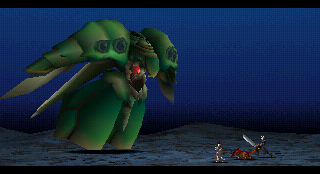
A daunting task…
Another problem is definitely the scale of the project. There have been so many times where I’ve sat down to write and just thought “is this really worth it?” I often find myself wondering if it has all been a waste, or if I should continue the project for no reason other than to finish what has been started. Every time, I have persevered. As this is entirely non-profit, it might seem like my only reward is the positive feedback I receive on a daily basis. To be honest, that itself would have been worth dedicating years of my life to, but then I consider that the project has led me onto getting a job as a professional travel writer, being recruited as the lead screenwriter for the doomed FF7 web series, and now commissioned to author a completely unrelated fantasy series among other things. When you look at it that way, it’s been pretty successful in my opinion. The message I would give to any writer who is facing some tough odds is to keep following your dream, because sooner or later it will take you somewhere you want to go.
I think the main issue I’ve faced as an author has been the development of my technique, particularly in my elaborate use of descriptions of scenes and settings; I like to be thorough in my writing rather than skip over details, but try to remain as true to FF7 as possible. My preferred style was influenced originally by Tolkien, though this has drawn criticism from some readers as they feel that I have lingered too long on a detail and disrupted the flow of the scene or taken liberties where it was unnecessary. Others, however, have repeatedly commented that their favourite aspect of my work is the depth of detail into which I go. What this taught me is that no matter what you do, you cannot please everyone, so you might as well use the criticism constructively but stick to a style or technique you prefer. At least that way, you will be able to continue loving what you do.
The Lifestream: It has been said that FFVII is “unfilmable” – that is, like “Dune” and other great sci-fi/fantasy epics, it is impossible to capture it in its entirety in a three hour film. (Although with the rumours going around that Netflix is producing a live-action Zelda series, I live in hope!) Would you also agree that FFVII is essentially “un-novelisable?” defeating the best efforts of everyone who has tried to turn this sprawling game into a novel?
SandG: I would wholeheartedly disagree, though I will accept that certain consideration would have to be taken. Firstly, to the best of my knowledge, Mr. Ite of TLS.net did complete a novelization of FF7 under the title The Jenova Project. However, he has since removed most of the files from the internet (for editing purposes I believe). I was unaware of his work for a long time after I released my own version, but will acknowledge that he was years ahead of me in terms of completion, though our styles are significantly different. While countless others out there have attempted the same and been unsuccessful, Ite is proof that FF7 is not “un-novelisable”, and we are both proof that a demand still exists.
What I will say, though, is that some aspects of the game simply don’t translate into written medium. Turn-based combat is the obvious one, but there are also others such as interpreting the manner in which text dialogue is presented or describing the over-the-top-fantasy action sequences in a sensible way. I think that the written edition of the story allows us authors to use our own creativity to make the tale of the original FF7 even deeper, from embellishing the world map so that it feels more like a modern civilization to incorporating information and retcons from other Compilation titles such as Crisis Core and Before Crisis so that it all ties together. I appreciate that this does not appeal to a wider audience who know and love FF7 and don’t want to see anything about it changed, but to some this grants them an opportunity to revisit the story in a new way or even share it with those who are unfamiliar with videogames.
The Lifestream: Do you think that writing fanfic is a stage that young authors pass through, a kind of apprenticeship for the proper business of writing original fiction? Or is it a valid form of literature in its own right?
SandG: While I wouldn’t really describe fanfiction in general as an “apprenticeship” or a stepping stone medium as such, that’s pretty much how it affected my life. I think fanfiction is an excellent platform for anyone looking to develop or test their skills because it’s like a ready-made market. I have heard individuals criticize fanfic writers for lack of originality which really annoys me for two reasons: I myself am a fanfic writer, but I have also recognized that there are generally two types of people when it comes to writing. Some people are fantastic at generating new and exciting concepts, but may not have the skills to effectively present those ideas in prose, while others are strong writers, though perhaps not as blessed with the ability to create their own concepts. I think the latter make perfect fanfic authors because their most difficult hurdle of establishing the foundations of a story has already been overcome, and they can focus instead on building their own plot. A third and far rarer type of writer is those who are strong at both; these are the ones who become the superstars of the literature world. To answer the original question, however, I believe that fanfiction is a thriving community in its own right where writers can share their own creations with like-minded people without the concerns of publishing, marketing, etc, but I also agree it is an excellent launch platform for anyone wishing to hone their techniques before unleashing a new concept upon the world. Had it not been for fanfiction, I would not be anywhere near ready to publish my own books.
The Lifestream: What do you consider to be your major strengths and weaknesses as a writer?
SandG: Though it has been criticized in the past with regards to some creative additions to the FF7 story, I definitely feel that my historian-like approach to writing is one of my major strengths. I think this comes from a combination of my education and the format I have had to follow to produce cultural walking tours. A lot of research, analysis and regurgitation of information are required for that, and I usually find myself investigating background details so that I have a far broader understanding of an event, etc. Applying the same technique to FF7 means, for example, that instead of declaring Shinra, Inc. rose to power, I would explain in depth how the Company did so, involving the economic or political implications over the decades. I’m very thorough in my writing, though I also like to remain as canon as possible when it comes to the FF7 world. There are times, however, when these two can clash, as not enough information has been provided by game creators. This tends to be where I adopt artistic license. I often find that my greatest challenge comes during fight scenes or high-octane events where you have to maintain a frantic pace while progressing the action and trying to avoid repetition. I’m never certain that I’ve captured the moment well, so it’s always nice when I receive a bit of praise for it. The climax of The Man in the Black Cloak is probably the most recent example of this. I feel that my grammar and vocabulary are reasonably strong, but having a few volunteer editors working alongside me is invaluable as fresh eyes see things that I might miss, or can point out flaws in my draft presentation. I am constantly learning and taking notes on my phone of ideas to consider or new words to investigate or phrases I like, and have grown to appreciate the true worth of reading the works of various writers so as to help refine my own style.
The Lifestream: Your current projects sound like the kind of thing Final Fantasy fans and sci-fans would love. Tell us something about them.
SandG: Outside of the Final Fantasy VII Unofficial Novelisation, my attention mainly focuses on the Axtelera Ray: Rise of Astrone series, the first book of which is in development and due for release later this year. I have teamed up with the sensational talent of Alroy Jovi – another colleague from the FF7 web series days – who is a visual effects specialist. We discussed the project when I first met him in London about 18 months ago; he had an amazing concept but needed an author, while I was on the hunt for a new venture, so it worked out pretty well. He gave me the skeleton of a story and some characters to work with, and I’ve taken it from there. We and a few others have been working hard to bring our idea to fruition and have already amassed quite a huge online following (find us at www.facebook.com/axteleraray).
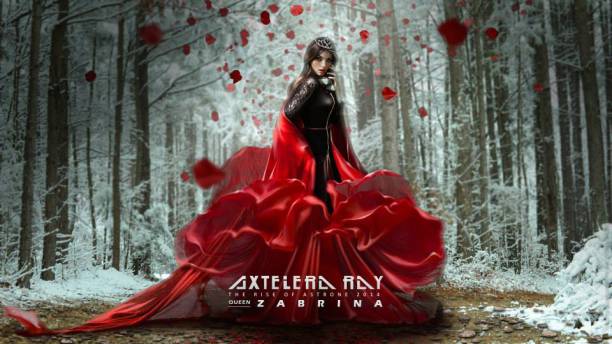
Axtelera Ray: The Rise of Astrone is an epic saga that blends science fiction and fantasy with real historical events and global mythology. The story is set both on Earth and a parallel fictional world called Octavia. Octavia is a technologically-advanced place where the ancestors of its inhabitants were the celestial beings that our various ancient cultures worshipped as Gods. In other words, our mythology is their history. A primary focus for the series is the ascension of Astrone, a great but mysterious man, to the position of High King of Octavia, and thereafter the struggle to reclaim his throne once betrayal and malevolence have seized it for evil gain. The first novel, Axtelera Ray: The Chronicles of Astrone, is largely told through the eyes of two Earthborn children who have been summoned to Octavia in the wake of a terrible battle so as to help bring peace back to the kingdoms. They team up with some legendary creatures such as Elves, Faeries, Werewolves, Centaurs and more from global mythologies, and find out that they themselves wield some pretty extraordinary abilities.
This book draws heavily from Norse mythology and regularly relates back to the old stories of Odin and Thor, etc, but with some Greek, Slavic, Celtic, Chinese and Native American lore tossed in for good measure, though the twist is that it’s all a bit futuristic. Part of the story is also set on Earth during the mid-20th century so delves into topics such as the Indian Independence Movement and the Second World War. One of the reasons I was so eager to join the project is that it created a fantastic opportunity to write (what I hope will be) a tale with lots of fantasy adventure, but also use my experience as a travel writer to provide a little bit of cultural and historical information to tie it all together. I’m very excited about it all and I hope you will be too. You can check us out for more details at www.axteleraray.org.
The Lifestream: This new project definitely ticks all my boxes! Are we witnessing the birth of a new fandom? I guess for now we’ll just have to wait and see. Meanwhile, why not click here for a taste of SandG’s epic novelization? Comments are most warmly welcomed! You can also check out his Facebook page,and learn more about his Axtelera Ray project here.

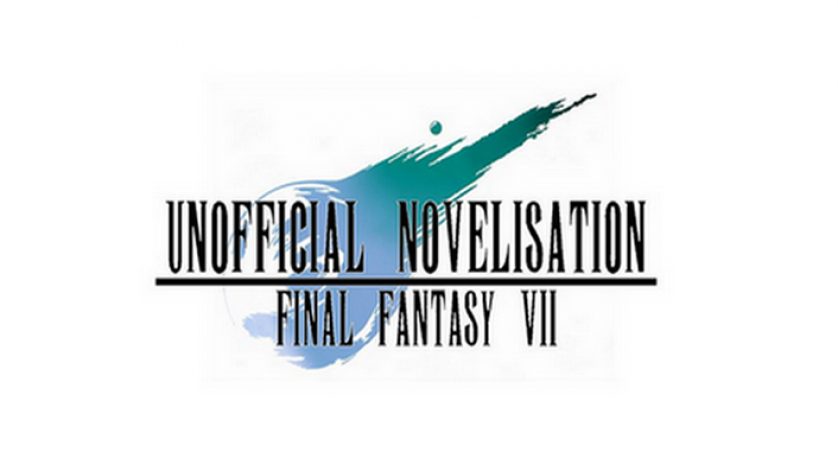
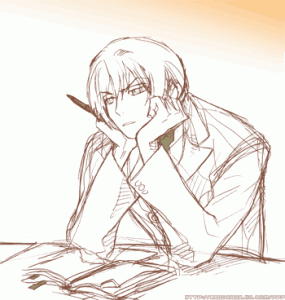


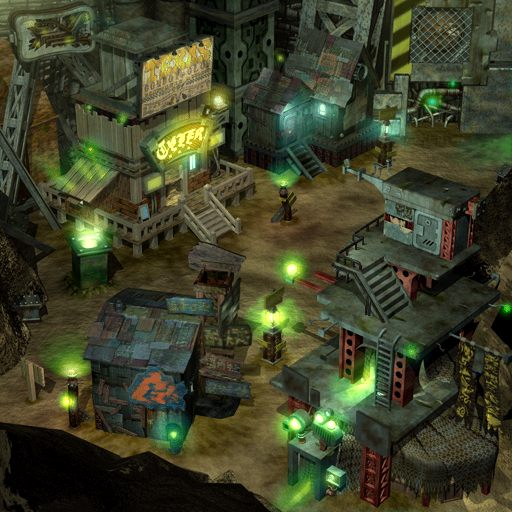


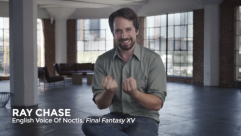
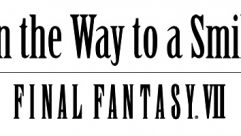

No comments yet
Log in or Register
A Dinosaur using a lightsaber from Star Wars against a material-arts T-Rex? That’s something new, pretty interesting to see. Imagine the looks on the Star Wars fans’ and Dinosaur fans’ expressions! However came up with this idea should make a story titled, “Prehistoric Star Wars!”
“I feel that my grammar and vocabulary is reasonably strong…particularly my elaborate use of scenes and settings.”
-MGallagher
“It’s not going to win any literary awards anytime soon.”
-Kotaku
“An epic amount of purple prose is still purple prose”
-Comments
“I take criticism constructively”
-MGallagher
“Good luck with this c***.”
-MGallagher via Twitter
🙂